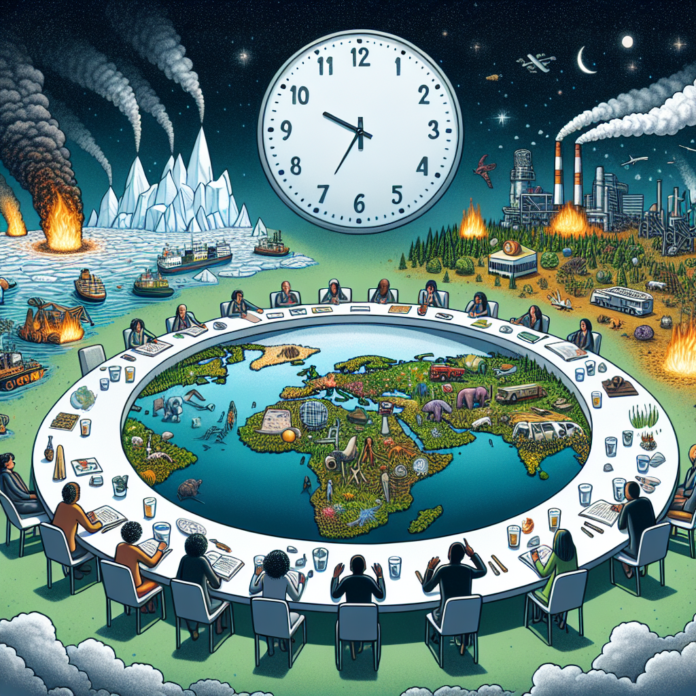Facing the Truth of Climate Crisis
Editorial: Confronting the Climate Emergency with Honesty
As the world grapples with the escalating effects of climate change, it has become increasingly vital for us to confront the reality of this emergency with transparency and urgency. The climate crisis is not a distant threat; it is now a pressing issue impacting our ecosystems, economies, and communities in profound ways.
Rising global temperatures, erratic weather patterns, and increasing instances of natural disasters are just a few indicators of the climate emergency we are facing. The Intergovernmental Panel on Climate Change (IPCC) has repeatedly warned that we are approaching critical tipping points that could lead to irreversible damage to our planet. These warnings should serve as a wake-up call, urging us to take immediate and effective action.
Understanding the Impacts
The ramifications of climate change are far-reaching. Coastal communities are experiencing rising sea levels that threaten their very existence, while droughts and wildfires have become more frequent and intense, devastating ecosystems and livelihoods. In many regions, agricultural productivity is declining, leading to food insecurity that disproportionately affects vulnerable populations. Moreover, the health impacts of climate change, including respiratory issues from pollution and heat-related illnesses, are becoming more pronounced, placing further strain on our healthcare systems.
The Role of Policy and Innovation
To address this crisis, we must move beyond mere rhetoric and commit to substantial policy changes at both local and global levels. Governments must prioritize renewable energy sources, enforce stricter regulations on emissions, and invest in sustainable infrastructure. Furthermore, international cooperation is crucial; climate change knows no borders, and collaborative efforts are essential to mitigate its impacts effectively.
Innovation also plays a critical role in combating climate change. Advances in technology, such as carbon capture and storage, electric vehicles, and sustainable farming practices, offer promising solutions. By investing in research and development, we can harness these innovations to create a more sustainable future.
Empowering Communities
It is equally important to empower communities to take action. Grassroots movements have proven to be powerful agents of change, and local initiatives can lead to significant improvements in sustainability. Education and awareness campaigns can inspire individuals to adopt more sustainable practices in their daily lives, from reducing waste to conserving energy.
A Call to Action
As we reflect on the climate emergency, it is crucial that we engage in honest conversations about its causes and consequences. Denial or complacency will only exacerbate the crisis. Instead, we must foster a culture of accountability, where individuals, businesses, and governments recognize their roles in contributing to and solving this issue.
In conclusion, acknowledging the climate emergency is the first step toward meaningful action. We must unite in our efforts to combat this crisis with honesty, innovation, and determination. The future of our planet—and indeed, the legacy we leave for future generations—depends on the choices we make today. Let us confront the climate emergency with the seriousness it deserves and work collectively to forge a sustainable path forward.
